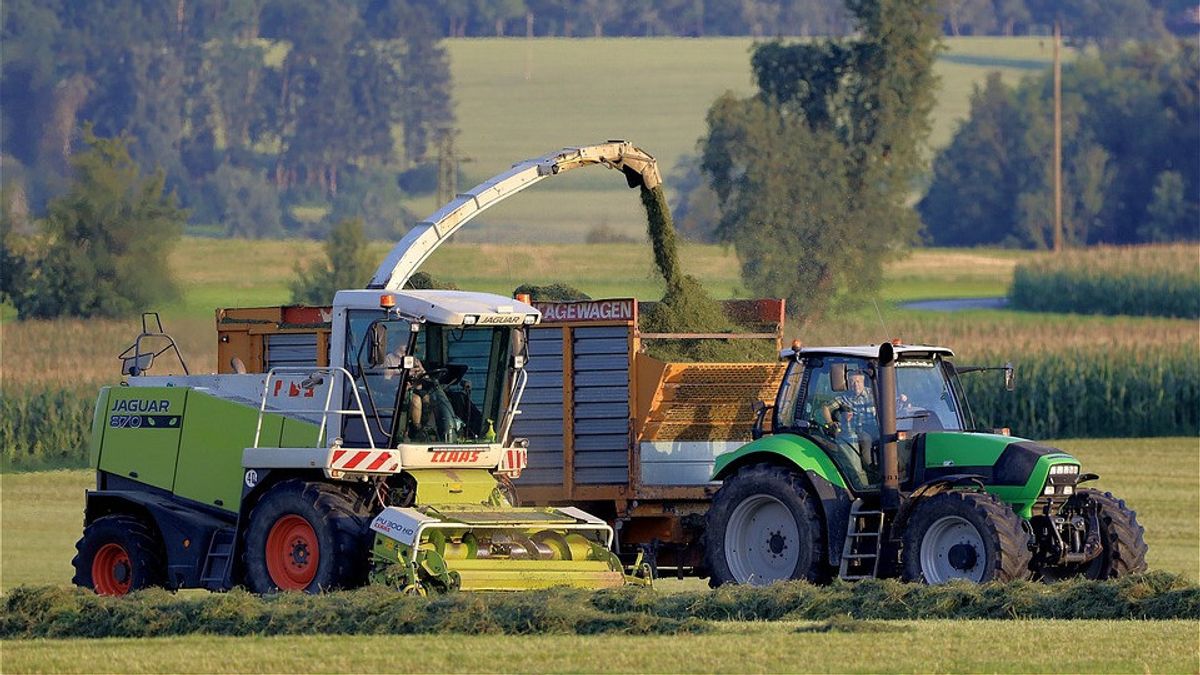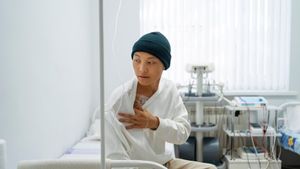JAKARTA - The National Research and Innovation Agency (BRIN) assesses that development programs that use a lot of human energy are now not popular as the number of agricultural land is increasingly narrowing and interest in becoming farmers is decreasing.
BRIN Steering Committee member Marsudi Wahyu Kisworo said the solution to solving the problem was to use technological innovations of agricultural tools that use electrical power and utilize artificial intelligence. "We may currently be aggressively developing electric cars, but engineers can also make agricultural tools that use electric power, for example creating autonomous tractors (without crew) with electric power from solar panels. So, our innovation must be directed there (farmery equipment)," said Marsudi, confiscated by Antara, Monday 27 March. Marsudi said innovation must also lead to smart agriculture which can be automated by involving various disciplines of science ranging from information and technology, electro, as well as the internet for all or IoT.The next innovation trend is the precision farming, for example utilizing drones to spread fertilizer and water, so that they are efficient and not wasteful. "IoT technology is also needed to detect plants, for example when it must be given water, if it is sufficient, automatically the core is closed, and so on," said Marsudi. Furthermore, he said that the main key to agricultural production is to increase productivity upstream, one of which is by carrying out genetic engineering. In Indonesia, the average sugarcane production in one hectare only produces 60 to 70 tons of sugarcane. Meanwhile, India and Brazil can produce can produce cane up to 140 tons per hectare. Quoting the conditions of food security this year, the National Food Agency stated that salt, sugar, sugar, meat, garlic, and soybean commodities still depend on imports. "So, if innovating, the engineers focus on these commodities," said Marsudi.
In addition, raw material transportation is also important by using post-harvest technology. Marsudi revealed that Indonesia is a country with food loss or food damaged high enough to reach 30 percent. Stock storage with concrete walls causes food raw materials, such as fast rice to be damaged. Innovation controlling atmospheric storage (CAS) is a storage space, but its atmosphere is controlled, so that roting bacteria do not live, one of which is by using ozone. "Outside the country is already common, but in Indonesia there is not much that develops it," he said. According to Marsudi, the world's major food exporting country is not always a country with a large area of land. The world's largest food exporting countries are America, the Netherlands, Germany, and Brazil. If Indonesia has high food production, then Indonesia does not need a large land to produce arm products but needs technology. World major food exporting countries are now aggressively utilizing various technological innovations ranging from upstream to downstream technology, thus producing high food productivity.Therefore, the presence of BRIN aims to consolidate the resources of science and technology, namely human resources, infrastructure, and budget, to improve critical mass, capacity, and Indonesia's research competencies. "BRIN is here to realize a global standard research and innovation ecosystem, is open (inclusive) and collaborative for all parties, both academics, industry, community, and government," explained Marsudi. "Indonesia targets to become a developed country by 2045, with Gross Domestic Product (PDB) per capita of 23 thousand US dollars. While in 2022, GDP per capita reaches 5 thousand US dollars. "To get out of countries with preventive class income, we have to implement innovations for the nation. Research-based economic foundations must be sustainable and focused on digital, green economy, and blue economy," he concluded.
The English, Chinese, Japanese, Arabic, and French versions are automatically generated by the AI. So there may still be inaccuracies in translating, please always see Indonesian as our main language. (system supported by DigitalSiber.id)








